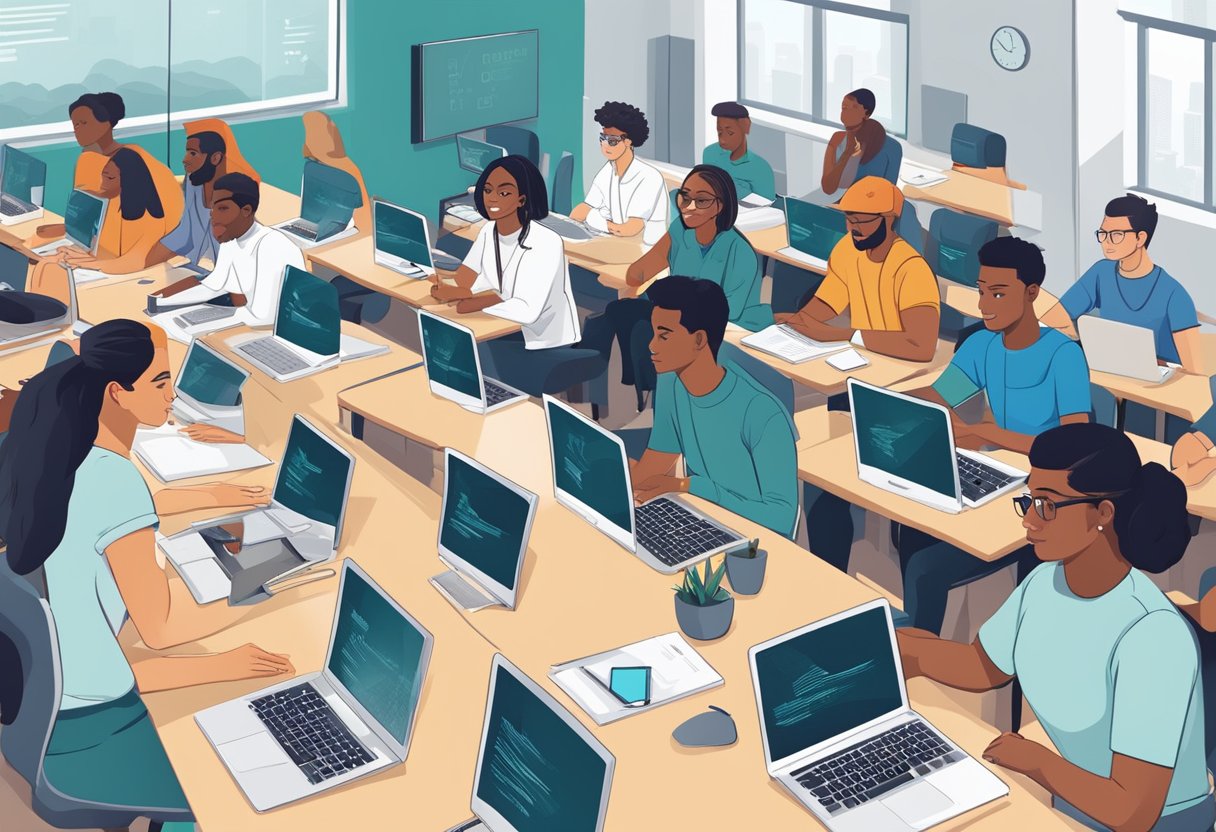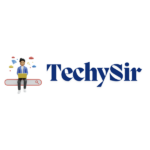Top Coding Bootcamps to Attend for a Successful Tech Career
Choosing a coding bootcamp can be a crucial step toward a successful tech career. With many options available, each offering unique curricula and specialties, it’s important to find a program that fits personal goals and learning styles. The best coding bootcamps provide a mix of strong career services, comprehensive support, and high-quality education that can lead to meaningful job opportunities.

Many bootcamps are now available online, making it easier for students to learn from anywhere. These programs often focus on in-demand skills like web development, data science, and cybersecurity. Prospective students should consider factors such as curriculum, cost, and job placement rates before making a decision that will shape their future.
Investing in a coding bootcamp is not just about learning to code. It’s about opening doors to new career paths and equipping oneself with the skills needed in a fast-changing job market. The right program can lead to a fulfilling career in technology.
Key Takeaways
- Selecting a coding bootcamp requires careful consideration of personal goals and program specifics.
- Job placement support and curriculum quality are essential for career success.
- Online options provide flexibility and access to some of the best coding education available.
Choosing the Right Coding Bootcamp
Selecting a coding bootcamp involves considering various aspects to ensure a good fit for personal goals and circumstances. Important factors include the types of bootcamps available, their duration and scheduling, the format of the classes, and their accreditation and outcomes.
Types of Bootcamps
There are several types of coding bootcamps that focus on different areas of study. Students can choose from programs specializing in web development, data science, cybersecurity, and user experience (UX) design.
Each type offers a unique set of skills. For example, web development bootcamps often teach full-stack development, while data science bootcamps focus on programming languages like Python and data analysis techniques.
Additionally, some bootcamps offer full-time, part-time, or flexible schedules. Researching the curriculum and skills taught is essential for matching personal interests with the right program.
Program Length and Scheduling
Coding bootcamps vary in length, often ranging from 8 to 24 weeks. Full-time programs typically last about 12 to 16 weeks. Part-time programs can be longer, accommodating those who may work while studying.
Students should also consider scheduling options. Some bootcamps offer evening and weekend classes for those with day jobs. A bootcamp’s duration and schedule should fit the learner’s lifestyle to provide the best chance for success.
A shorter bootcamp can lead to rapid entry into the workforce, while a longer program may offer a more in-depth understanding of concepts.
In-Person vs Online Formats
Coding bootcamps can be taken in-person or online. In-person programs provide hands-on experiences and immediate interaction with instructors and peers. This format can enhance collaboration and offer networking opportunities.
Online bootcamps have become increasingly popular. They offer flexibility, allowing students to learn from anywhere. Many reputable online coding bootcamps feature live instruction or recorded lectures, ensuring quality education.
When choosing a format, students must consider their own learning preferences and whether they thrive in a structured environment or need the independence of online learning.
Accreditation and Outcomes
Accreditation is an important factor to consider when choosing a bootcamp. Accredited programs may be more trustworthy and credible in the job market. They often meet certain educational standards and can offer better job placement rates and career coaching services.
Outcomes are crucial as well. Students should look at a bootcamp’s job placement statistics. Bootcamps that provide income share agreements or deferred tuition can reduce upfront costs, making it easier to take the plunge.
Checking reviews and testimonials offers additional insights into each program’s success.
Curriculum and Specialization
Coding bootcamps offer a range of specialized curriculums to cater to different career paths in tech. Each program focuses on essential skills needed for the respective fields. Below are detailed descriptions of various specializations available in coding bootcamps.
Front-End Development
Front-end development focuses on user interfaces and user experience. It involves skills like HTML, CSS, and JavaScript. Bootcamps often cover frameworks such as React or Vue.js.
Students learn how to build interactive websites that engage users. They also explore responsive design, ensuring sites work on various devices. Additionally, understanding version control tools like Git is part of the curriculum.
By the end of the program, students might build a portfolio showcasing their projects. These skills are crucial for attracting employers looking for web developers.
Back-End Development
Back-end development involves server-side programming and database management. This specialization typically covers languages such as Python, Java, and Ruby.
Students learn to create the logic that powers web applications. They also get hands-on experience with databases, often using SQL to manage data.
Learning about RESTful APIs is common, as it allows communication between the front and back ends. Other important tools might include server management concepts and frameworks like Node.js.
Successful back-end developers are vital for creating functional and scalable applications.
Full-Stack Web Development
Full-stack web development combines both front-end and back-end skills. Students gain a comprehensive understanding of web technologies.
Curriculum usually includes a mix of languages like JavaScript for front-end and Python or Ruby for back-end. Bootcamps teach students to create complete web applications.
They learn about databases, server management, and responsive design. Additionally, familiarizing with Git for version control is essential.
Graduates can take on versatile roles, handling both user interfaces and server logic.
Data Science and Machine Learning
Data science and machine learning bootcamps cover a range of topics to equip students with analytical skills. Key programming languages include Python and SQL.
Curriculum often focuses on data analysis, visualization, and machine learning algorithms. Students learn to use libraries like Pandas, NumPy, and scikit-learn.
Bootcamps also introduce concepts in artificial intelligence. This equips graduates to handle big data and develop predictive models.
Practical projects are essential. Students work on data-driven solutions to real-world problems, enhancing their portfolios.
UX/UI Design and Digital Marketing
UX/UI design focuses on improving user experience through effective design practices. Bootcamps often cover the principles of design, usability testing, and prototyping tools.
Students learn how to create intuitive user interfaces and visually appealing designs. Skills in graphic design software and wireframing are key.
Additionally, digital marketing components help students understand how design affects user engagement. Topics include search engine optimization (SEO) and content strategy.
Graduates emerge ready to enhance online experiences through thoughtful design techniques.
Cybersecurity and Cloud Computing
Cybersecurity bootcamps emphasize protecting systems and networks from attacks. Students learn critical skills needed to identify and mitigate security threats.
Curriculum typically covers concepts like firewalls, encryption, and ethical hacking. Programming languages such as Python may also be part of the course.
Cloud computing training focuses on managing and deploying applications in cloud environments. Students learn about services like AWS or Azure and their uses in modern business.
By understanding both areas, graduates can truly secure and manage technology infrastructures effectively.
Skills and Career Outcomes
Coding bootcamps focus on equipping students with the vital skills needed for tech careers. They often blend technical training with hands-on projects to improve job readiness. Graduates typically leave with strong portfolios, real-world experience, and preparation for interviews in tech jobs.
Technical Skills
Students in coding bootcamps learn essential programming languages and tools. Common languages include:
- JavaScript
- Python
- Java
- HTML/CSS
These skills prepare graduates for roles as software developers, web developers, or software engineers. In addition to coding languages, bootcamps teach frameworks like React.js and database management with SQL. The curriculum emphasizes both front-end and back-end development, ensuring graduates can tackle full-stack projects. This broad skill set enhances their employability in a competitive job market.
Professional Portfolio
A professional portfolio is crucial for standing out in tech careers. Bootcamp graduates build portfolios showcasing their best projects. This collection often includes:
- Web applications
- API integrations
- Collaborative team projects
By having a diverse range of projects, graduates demonstrate their coding abilities and problem-solving skills. A well-organized portfolio serves as a visual resume, highlighting creativity and technical expertise for potential employers. Many bootcamps provide guidance on crafting these portfolios to ensure they leave a lasting impression.
Real-World Projects and Experience
Project-based learning is a core part of most bootcamps. Students work on real-world projects that simulate actual tech work environments. This hands-on experience is invaluable when transitioning to tech jobs. Projects often include:
- Developing websites
- Building software applications
- Contributing to open-source projects
Collaborating on projects allows students to employ their skills while working alongside peers. This teamwork experience mirrors the collaborative nature of the tech industry. Graduates often find that these projects are key talking points during interviews, showcasing their ability to apply knowledge in real situations.
Technical Interviews and Mock Interviews
Preparing for technical interviews is essential for success in tech careers. Many coding bootcamps offer mock interviews to help students practice. These sessions cover:
- Common interview questions
- Coding challenges
- System design problems
Mock interviews often involve feedback from instructors or industry professionals. This preparation not only boosts confidence but also sharpens problem-solving skills necessary for real interviews. Graduates are better equipped to navigate the technical and behavioral aspects of hiring processes, increasing their chances of landing jobs in software development or web development.
Education Investment
Investing in coding bootcamps can significantly impact one’s career and finances. Understanding the costs, potential returns, and available support can help students make informed decisions.
Cost and Financial Aid
Coding bootcamp prices can vary widely. The median cost of a bootcamp can be around $11,900, with many programs ranging from $7,500 to $13,950.
Here’s a quick look at common costs:
| Type of Bootcamp | Median Price |
|---|---|
| Full-Time | $13,500 |
| Part-Time | $7,500 |
In addition to tuition, students should consider extra expenses like housing, food, and transportation. Many bootcamps offer financial aid options, including scholarships and payment plans, to help ease the cost burden.
Return on Investment
The financial return from attending a coding bootcamp can be substantial. Graduates often see a salary increase after completing their training. The average salary for coding bootcamp graduates can rise to over $70,000 annually, depending on their skills and market demand.
A coding bootcamp typically lasts from one week to ten months. In contrast, a traditional four-year degree can cost around $35,551 per year. This shorter time frame can lead to a quicker return on investment for students eager to enter the tech workforce.
Job Guarantees and Career Support
Some coding bootcamps provide job guarantees, promising graduates a job within a certain timeframe after graduation. This safety net can lead to more confident career choices.
Bootcamps often include career support services, like resume workshops and mock interviews. Such resources can enhance a graduate’s job search efforts.
Graduates of bootcamps report feeling more prepared for the job market, thanks to hands-on training and networking opportunities facilitated by these programs.
Notable Coding Bootcamps
There are several coding bootcamps that stand out for their quality, support, and job placement rates. Each offers unique programs that cater to different learning preferences and career goals. Below are some notable coding bootcamps.
Coding Dojo
Coding Dojo provides a robust curriculum that covers multiple programming languages. Students can learn Python, Java, and JavaScript, among others. The bootcamp offers full-time and part-time options, making it flexible for various schedules.
Graduates often find jobs with major companies in tech. The program includes career services like resume reviews and interview coaching. Tuition is competitive, usually under $13,000. This bootcamp is suitable for beginners and those looking to switch careers.
Flatiron School
Flatiron School focuses on immersive learning experiences and career development. They offer full-time and part-time courses in software engineering, data science, and cybersecurity. Classes are available online and in select campuses.
Students benefit from personalized coaching and a strong alumni network. The bootcamp emphasizes job readiness skills, with many alumni landing jobs at well-known tech firms. Tuition costs around $17,000, but financial aid options are available.
General Assembly
General Assembly is well-known for its wide range of tech courses and global campuses. It offers comprehensive bootcamps in web development, data science, and product management. Students can choose between full-time or part-time programs.
With a focus on real-world applications, General Assembly includes hands-on projects. The bootcamp also provides career support and networking opportunities. Tuition typically ranges from $14,000 to $15,000.
Hack Reactor
Hack Reactor is highly regarded for its software engineering program. It offers full-time and part-time options, focusing on JavaScript and related technologies. The curriculum is intensive, designed to prepare students for fast-paced work environments.
Students have access to career services, including job placement assistance. Many graduates secure positions at top tech companies. Tuition is around $19,000, reflective of its robust program.
Ironhack
Ironhack offers coding bootcamps in web development and data analytics. Courses are available in both online and on-campus formats. The bootcamp focuses on practical skills and includes real-life projects in its curriculum.
Students can expect personalized mentorship and job assistance after graduation. Tuition generally falls between $7,000 and $12,000. It’s a great choice for those seeking flexibility and strong support.
App Academy
App Academy is known for its unique payment structure. Students can attend the program with no upfront tuition, only paying once they secure a job. The bootcamp offers full-time and part-time courses in software development.
The curriculum is effective, focusing on web development skills. App Academy boasts a high job placement rate, with graduates employed at competitive salaries. This bootcamp is ideal for motivated learners.
Bloc
Bloc offers coding bootcamps that combine online instruction with one-on-one mentorship. Students can choose from programs in web development and design. Their model emphasizes personalized support throughout the learning process.
Graduates often find roles in tech companies, thanks in part to Bloc’s extensive industry connections. Tuition costs typically range from $7,000 to $11,000. Bloc is suitable for learners looking for guided experiences.
Brainstation
Brainstation combines tech education with business skills. They offer bootcamps in web development, data science, and digital marketing. Courses are available full-time, part-time, and online.
The program emphasizes hands-on experience and project-based learning. Students receive support from industry professionals and access to job placement services. Tuition is generally around $14,000, with various payment options.
Springboard
Springboard focuses on personalized mentorship and a project-based approach. Courses include software engineering, data science, and UX design. It operates primarily online, allowing students to learn at their own pace.
The bootcamp guarantees job placement within six months or tuition back. This commitment highlights their confidence in their programs. Tuition is close to $7,500, and they offer flexible payment plans.
Tech Elevator
Tech Elevator is geared towards career changers, offering immersive coding bootcamps. The main focus is on Java coding and software development. Students can choose between in-person and online classes.
The bootcamp emphasizes job search skills and includes a robust career services program. Graduates often find jobs in respected tech companies, reflecting its high placement rates. Tuition typically falls around $15,000, with financing options available.
Support and Resources

Effective support and resources are essential for students in coding bootcamps. They can enhance learning, provide valuable connections, and offer pathways for career growth. Key areas to consider include ongoing education, community engagement, and diversity initiatives.
Ongoing Education and Upskilling
Many coding bootcamps recognize the importance of ongoing education. Programs like Coding Temple offer resources to help graduates upskill after completing their courses.
Students often gain access to:
- Workshops that cover emerging technologies.
- Online courses to refresh or advance their skills.
- Mentoring opportunities where experienced developers guide trainees.
This continual learning helps graduates stay competitive in the fast-evolving tech landscape. It can lead to better job opportunities and career advancement.
Networking and Community
Building a strong network is key in the tech industry. Many bootcamps facilitate connections among students, alumni, and industry professionals.
For example, Actualize organizes events that encourage networking.
Benefits include:
- Meetups where students interact with tech employers.
- Online forums for sharing knowledge and job leads.
- Alumni groups that offer support long after graduation.
Creating a community fosters collaboration and can lead to job referrals, making it easier to enter the tech field.
Diversity and Inclusion Initiatives
Addressing diversity in tech is crucial for future innovation. Coding bootcamps are increasingly focusing on inclusion.
Programs such as those at SheCodes specifically target women in coding. Initiatives can include:
- Scholarships for underrepresented groups.
- Support groups that provide mentorship and resources.
- Awareness campaigns that promote diverse hiring practices.
These initiatives help create a more balanced tech workforce and can inspire a broader range of individuals to pursue careers in technology.
Alternative Paths in Tech Education
Many options exist for those seeking tech education beyond traditional coding bootcamps. Self-learning, formal degrees, and vocational programs each have unique benefits. Understanding these paths can help learners choose the best route for their careers.
Self-Learning and Online Resources
Self-learning is a flexible approach to gaining tech skills. Many online platforms offer courses on various subjects, such as programming languages and data structures. Websites like Codecademy, Coursera, and edX provide access to high-quality content.
Learners can progress at their own pace and choose specific topics that interest them. Key benefits of self-learning include:
- Cost-effectiveness
- Accessibility from anywhere
- A wide range of subjects
While self-learning requires self-discipline, it also provides opportunities for hands-on projects. These projects can help in developing practical skills necessary for jobs in tech.
Traditional Computer Science Degrees
A formal computer science degree offers a thorough understanding of the tech field. Typically lasting three to four years, these programs cover essential topics, including algorithms, data structures, and software engineering principles.
Students learn both theory and practical skills through lectures and labs. This comprehensive education can be beneficial for students who want a deep understanding of computer science.
Advantages of a computer science degree include:
- Recognized credential in the job market
- Networking opportunities with peers and faculty
- Access to internships and work placements
While a degree can require more time and financial investment, it often leads to higher-paying positions and advanced roles in technology.
Vocational and Technical Training Programs
Vocational and technical training programs focus on practical skills and hands-on training. These often shorter programs aim to prepare students for the workforce quickly. Programs might cover topics like web development, cybersecurity, or data analysis.
Many vocational schools offer evening or online classes, making it easier for working professionals to participate. The emphasis is on relevant skills and real-world applications.
Benefits of vocational training include:
- Shorter duration than traditional degrees
- Tailored courses based on industry needs
- Direct pathways to jobs in tech
These programs can be especially appealing for those focused on specific careers and looking to enter the job market swiftly.
Frequently Asked Questions
Many people have questions about coding bootcamps. This section addresses common inquiries regarding the best options, job placement rates, employer perceptions, and more.
What are the best coding bootcamps for beginners?
Some coding bootcamps designed for beginners include General Assembly, Coding Dojo, and Flatiron School. These programs often provide supportive environments and structured curricula that cater to those new to coding.
Which coding bootcamp offers the best job placement rate?
Bootcamps like App Academy and Springboard are known for high job placement rates. They often have strong partnerships with tech companies and provide career support to help graduates find jobs.
Do employers value graduates from coding bootcamps?
Yes, many employers recognize the skills gained from coding bootcamps. Companies often appreciate the practical experience bootcamp graduates bring, especially when they have completed hands-on projects.
What are the top online coding bootcamps available in 2024?
Top online coding bootcamps for 2024 include Coding Temple for software engineering and Nashville Software School for data analytics. These bootcamps offer flexible learning options and a range of subjects.
Are there any coding bootcamps that offer a job guarantee?
Some bootcamps, like Job Guarantee by Springboard, offer job guarantees. This means students may receive a refund if they do not secure a job within a certain timeframe after graduation.
Can you recommend coding bootcamps that are free to attend?
While many coding bootcamps come with a cost, some offer free programs. Examples include FreeCodeCamp and The Odin Project, which provide comprehensive, accessible materials for aspiring coders.






Post Comment